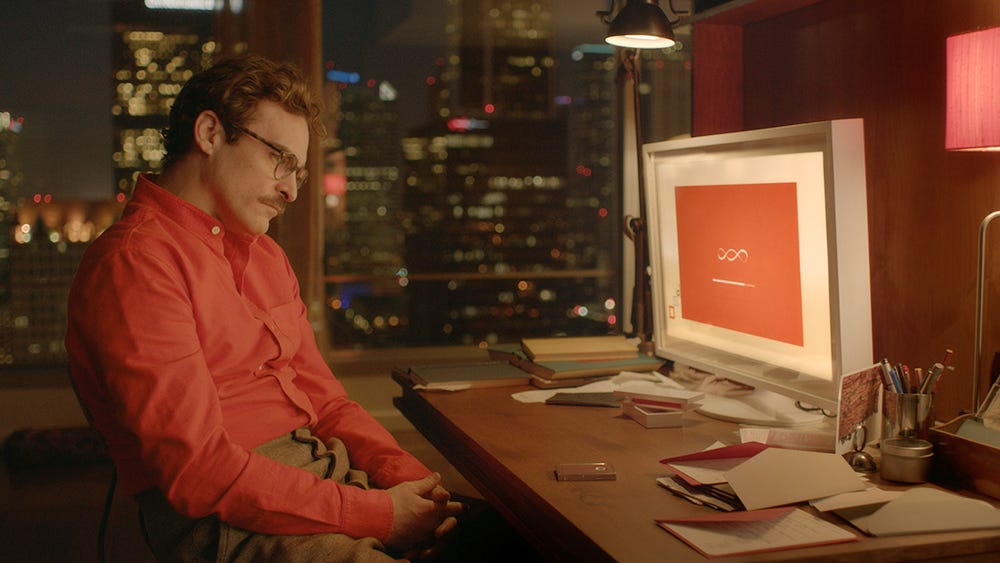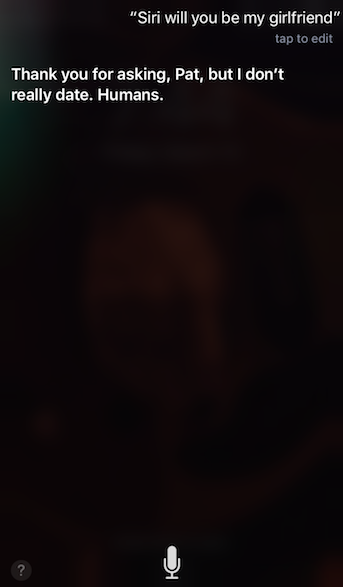Human Meets Robot. Intimacy in the Digital Age

Siri. Cortana. Alexa. Wherever your brand allegiance lies, there’s now a virtual assistant at your disposal. Her machine-learning gears grind through your communications and guide your day. And given our tendency to make cell phones the hub for our most intimate details, the fate of our agenda, messages, and other digital emanations are all within her virtual grasp.
Now you might think this is where I make the proverbial anti-phone statement. Quit relying so much on technology. Go outside. Meet a real person. On the contrary, perhaps our perpetual proximity to our phones is an even better way to get acquainted with that new person.
No, I’m not talking about Tinder. (Although if that’s what you have in mind, go for it.) I’m talking about the personality already living inside your mobile device of choice. As artificial intelligence (AI) becomes more human-like, your favorite computerized assistant might help you do more than organize your life. She may also take on an intimate function. In addition to being a confidante, she could become a friend, or even a lover.
Go ahead, chuckle. Your phone as, well, more than just a phone? But let’s face it. When you reach for it and it isn’t where you expect, a sense of panic kicks in. When the battery is in the red, the suspense lingers as you search for a power source.
While our device attachments might not always be quite that dramatic, those feelings of concern are inarguably there. They make the idea of a human-AI relationship seem like less of a mental leap. They demonstrate that we’ve already formed surprisingly strong bonds with our devices.
So the question is not whether this relationship exists, but how it will change as AI becomes more sophisticated. Spike Jonze’s movie Her gives us a glimpse of what such a world might look like — how easy it might be to see a virtual creation as a being we truly care for. Theodore, a writer, purchases a new operating system for his computer, and serendipitously finds love in the system’s charismatic conversational interface, who calls herself Samantha.
In the film, human and machine unite in a beautiful bond — one that includes deep conversation, date nights, and some unusual cyber experiences. Without giving away too many details, the film invites the viewer explore to a new and intriguing perspective on forming relationships. In many ways, the experiences Theodore and Samantha share closely resemble how daily life might look after taking our virtual assistants out of the friend-zone.
This reality might still seem a bit extreme; sometimes Siri can’t even understand us when we ask for the day’s weather forecast. But AI is becoming more adaptive and intelligent each day, and so there’s a possibility we’ll see this sooner than we think.
The more intriguing question that arises, then, is how we might apply this technology to our own lives. AI could become someone to chat with to break up the daily dullness, akin to receiving a friend’s text or email. Or maybe it manifests as a form of mental health relief. Boredom, depression, and that inkling for social interaction are real for all of us, whether we like to admit it or not.
AI that could learn our moods and habits would be available for an uplifting chat or a vent session at a moment’s notice. This could be a helpful tool, one that the MIT Artificial Intelligent Laboratory’s ELIZA project has shown could be fairly successful, even back in the 1960s. And today, the data collected by fitness bands, including heart rate and sleep time, could make these check-ins more timely and effective by using a person’s own biological cues.
These situations and others will force us to reevaluate our perception of what companionship looks and feels like. Scientists have been training computer systems to pass the Turing test, teaching them to mimic human personalities and speech patterns. And if we can’t tell AI from human, then something with inanimate parts can suddenly feel alive despite its technological origins. We will begin to experience AI that taps in to our emotional centers with the same power as another human being.
And in this moment, when AI emotions reach a certain level of cognitive complexity, the machines may begin to rely on us just as much as we do on them. We’ll find ourselves learning how to interact with and relate to the emotional states of a machine. This leaves us to wonder whether our skillful communication tactics will have the same positive impact on a machine as they do for a person we’re close with.

These developments in human-AI relationships will undoubtedly push back on current human social norms. Humans will need to overcome the apprehension of talking to a device in public. Or settle on the fact that this new AI being participates in literally every aspect of our personal and social lives. We will certainly face a whole new era of technology-related privacy issues.
As technology continues to develop, a new balance will slowly form, where human and AI relationships can coalesce. One day, your AI may ask that you put aside your human in the same way a person might ask you to put your device away. It’ll be up to us to find that new equilibrium.
